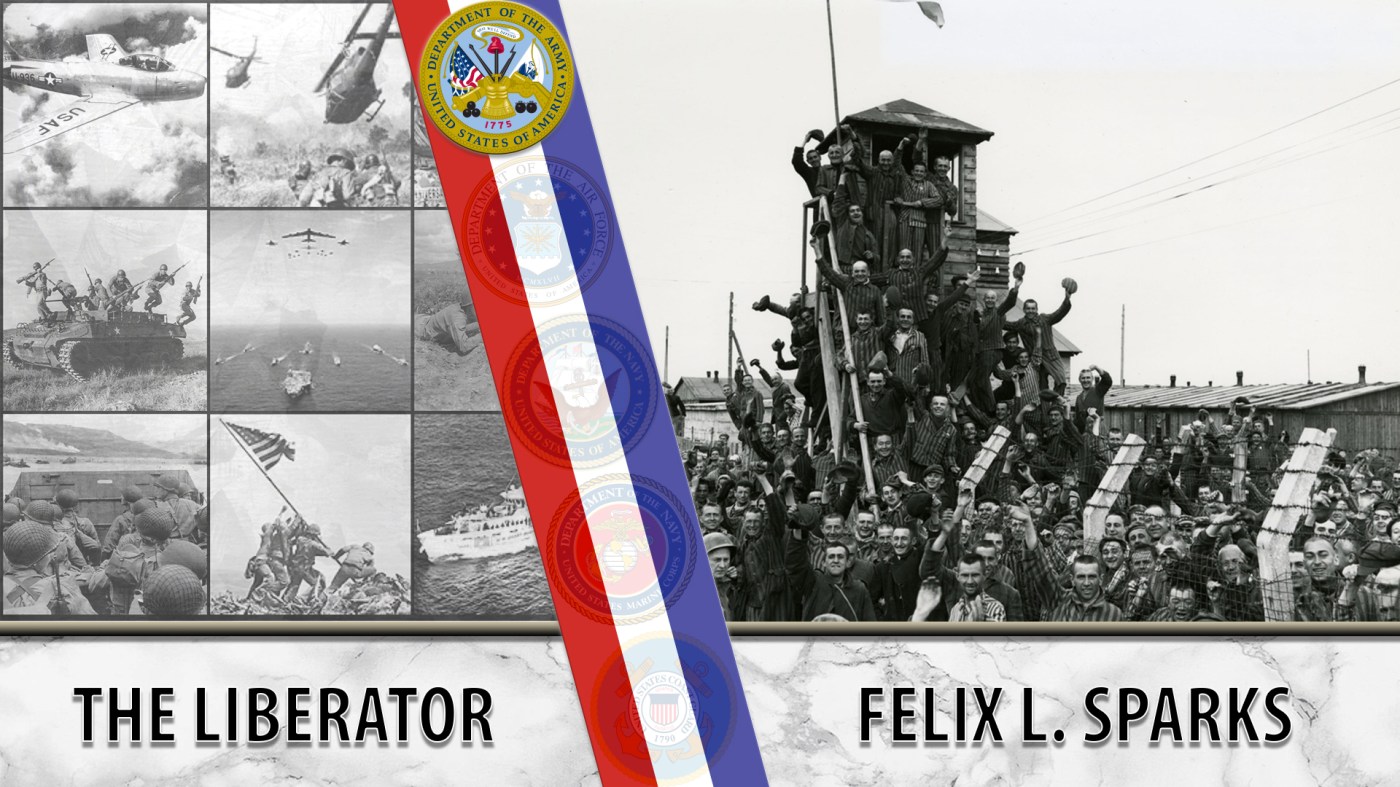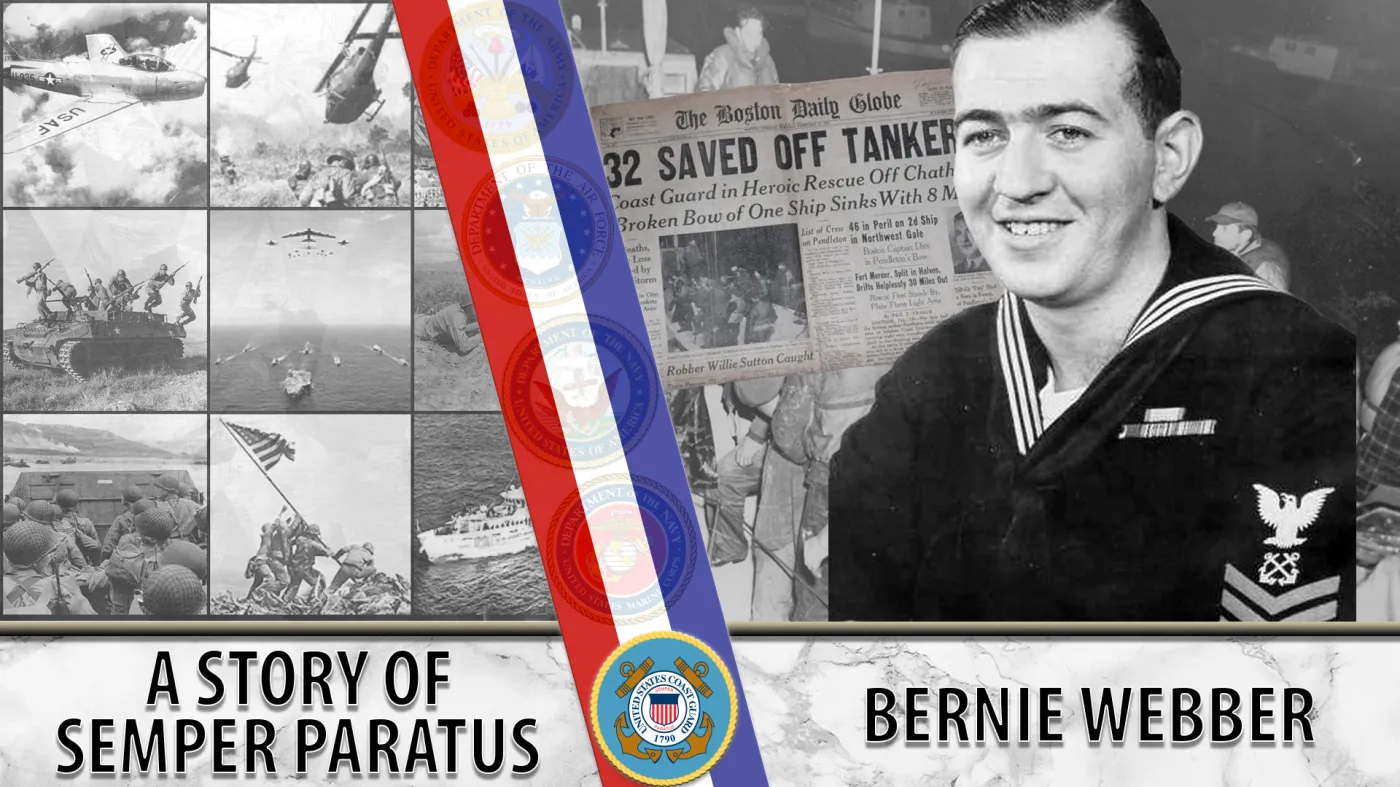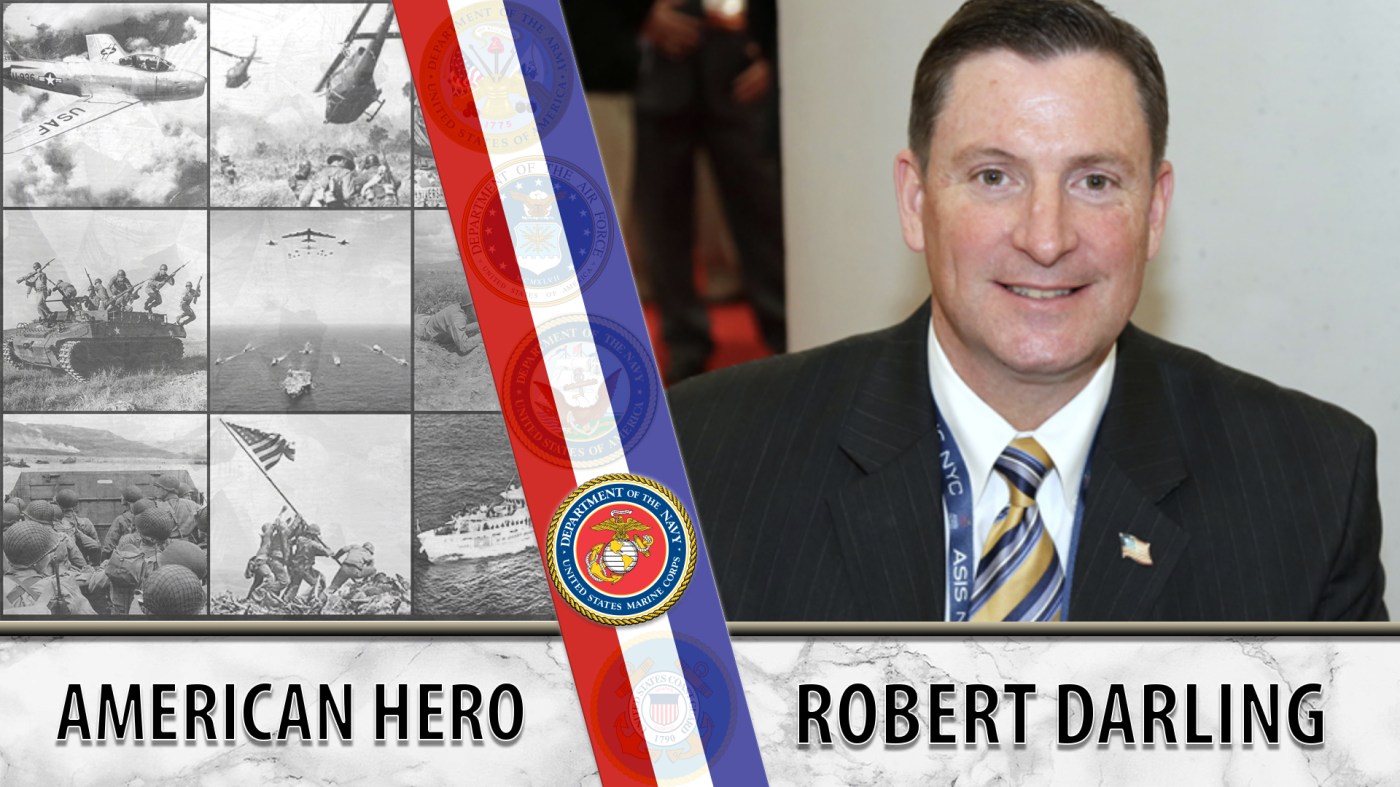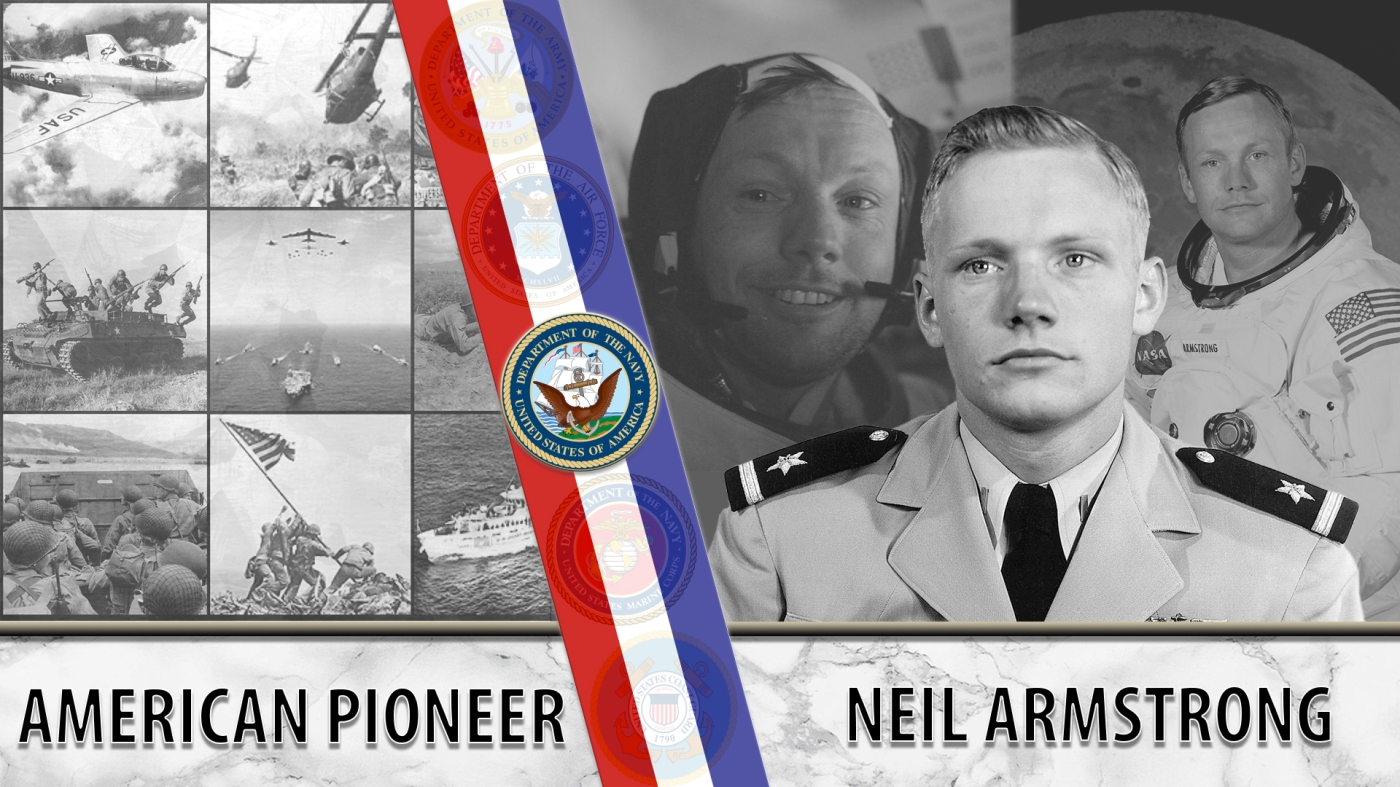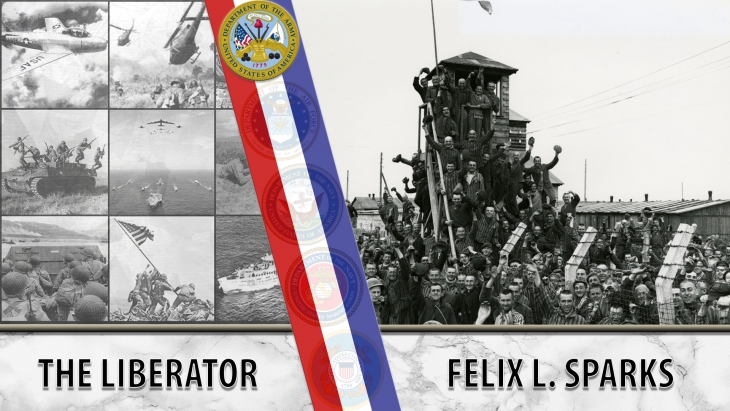
Army Veteran Felix L. Sparks, who served in World War II, is best known for his role in liberating the Dachau concentration camp.
Felix L. Sparks served as an U.S. Army infantry officer in World War II and during the Cold War.
Sparks was born in San Antonio, Texas, in 1917, and grew up in Miami, Arizona. Despite his father’s job security as a mine worker, he grew up in poverty. In a Library of Congress interview, Sparks recalled standing in food lines with his mother and four siblings during the height of the Great Depression.
After graduating from high school in 1935, Sparks left home to reduce his family’s economic burden. He spent several months alone on the road before arriving in San Francisco where his savings ran out. Facing homelessness, he enlisted in the Army. He completed basic training at Pearl Harbor, Hawaii, and was assigned to a coastal artillery battalion where he was quickly promoted. After he was discharged as a corporal in 1938, Sparks attended classes at University of Arizona, as well as military preparatory classes. A star student, he was offered a commission as a second lieutenant in 1940 and rejoined the Army.
The Army assigned Sparks to the 45th Infantry Division at Fort Sill, Oklahoma. His stubborn individualism continually frustrated his commanders, and he was assigned to lead a company of known troublemakers as punishment. Following the United States’ entry into World War II, Sparks deployed with the 45th to the European theater. After landing in southern Italy, he led a platoon of the famous 157th regiment as it prepared to land on the Italian mainland. The 157th was the Army’s most racially diverse unit at the time, and Sparks’ egalitarian leadership made him extremely popular amongst the enlisted men.
Sparks was badly wounded by shrapnel midway through the Italian campaign. Despite being declared unfit for duty by doctors in North Africa, he snuck onto a transport plane bound for Italy to rejoin his men. On the run from military police, Sparks was informed that he would be arrested once he returned from the front. He recalled in his interview that he simply responded, “Looks like I ain’t going back then!” The charges against him were dropped soon after.
The Italian campaign took a heavy toll on the 157th regiment. After taking part in the amphibious landings at Anzio, the platoon he led bore the brunt of a German attack. Although Sparks’ detachment stopped the German advance, only Sparks and one other soldier survived. After the fighting in Anzio, he commanded the 3rd Battalion of the 157th Regiment and took part in the amphibious landings in Southern France. During the fighting in France, Sparks earned the Silver Star for valor by braving machine gun fire to singlehandedly drag three wounded men to safety. After entering Germany, Sparks and the 157th regiment headed towards the city of Dachau.
Dachau marked a pivotal point in Sparks’ career. Outside the city, the 157th discovered the Dachau concentration camp, where tens of thousands of Jews and other Nazi prisoners were held under horrific conditions. In an interview with the Shoah Foundation, Sparks recalled the scene as his men liberated the camp: “We were hardened combat Veterans… but we were shocked. Some men broke down crying as we entered.” Soon after the Americans arrived, the camp descended into chaos as American soldiers and camp prisoners attempted to dish out vigilante justice to the remaining Germans in the camp. Through decisive leadership, Sparks established order and provided aid to the liberated prisoners.
Following the Dachau liberation, Sparks and the 157th moved to Munich for occupation duties. Sparks was discharged as a lieutenant colonel in 1945 and went to law school at University of Colorado. During a reorganization of the National Guard, Sparks was temporarily reinstated to lead the Colorado National Guard and oversee its modernization and deployment during the Cuban Missile Crisis. After retiring from the military for the last time in 1979, at the rank of brigadier general, Sparks led a successful career as a lawyer, eventually receiving an appointment to the Colorado Supreme Court. After a life defined by perseverance and individualism, Sparks died in 2007. A book and a Netflix TV show, both named “The Liberator,” have memorialized Sparks’ leadership and bravery.
We honor his service.
Writer: Michael Rattner
Editor: Julia Pack, Christine Myers, Rachel Falconer
Fact Checker: Monique Quihuis, Richard Aguilera, Aaliyah Walton
Graphics: Katie Rahill
Topics in this story
More Stories
Bernie Webber led one of the greatest Coast Guard rescues in history that was later chronicled in the book and movie, “The Finest Hours.”
As the events of 9/11 unfolded, Marine Veteran Robert Darling served as a liaison between the Pentagon and Vice President Dick Cheney in the underground bunker at the White House.
NASA astronaut Neil Armstrong was the first person to walk on the moon. He was also a seasoned Naval aviator.

